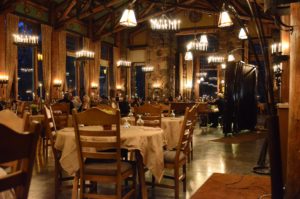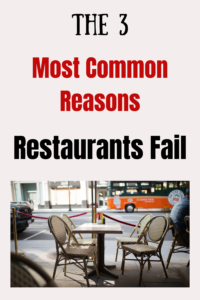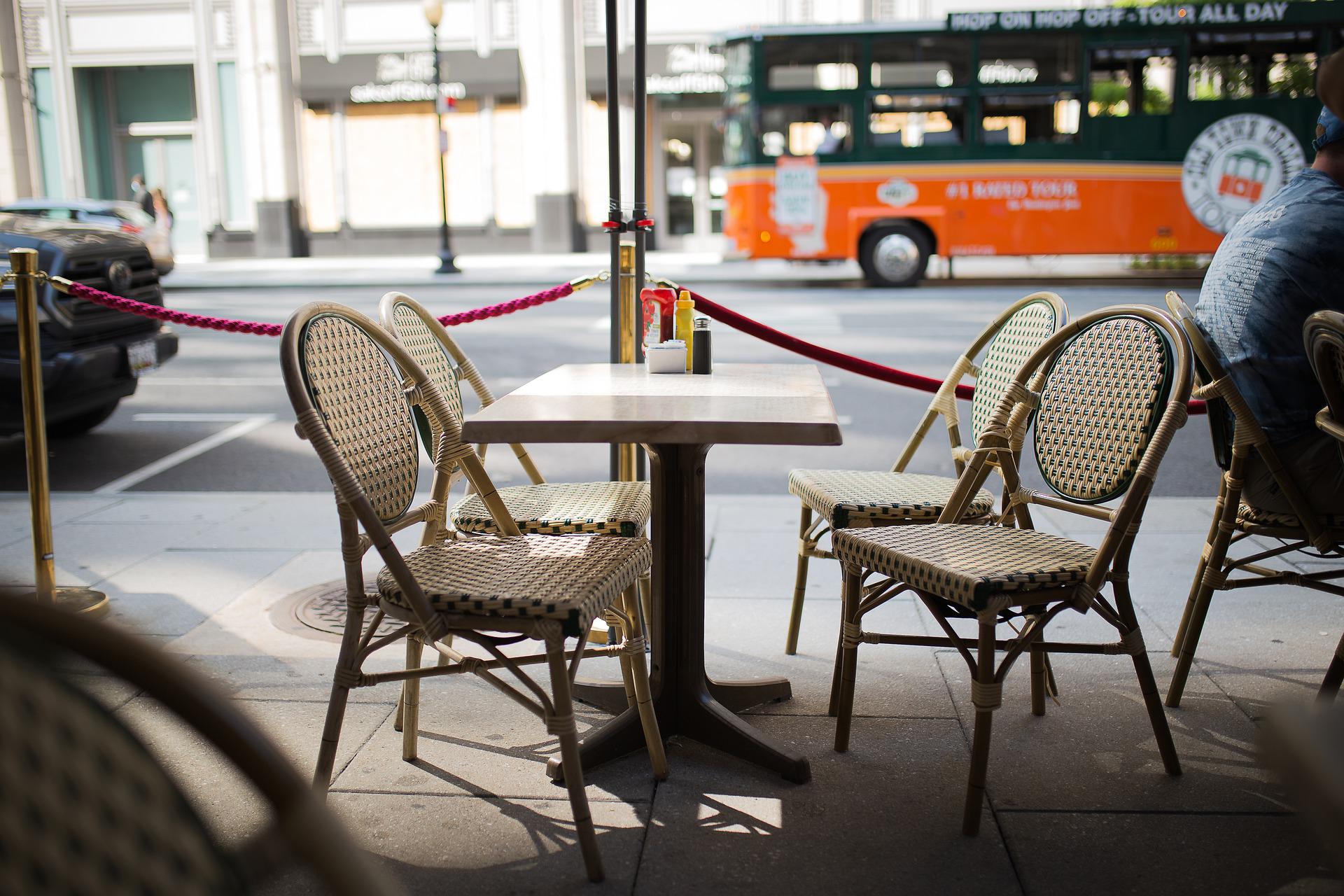First Published on: Oct 1, 2022 at 11:31
Restaurant Failures
- Why restaurant business fail
The restaurant industry is especially prone to failure in the first year of operation due to low-profit margins, high staff turnover, and the challenges brought on by external economic forces. But, the 3 Most Common Reasons Restaurants Fail is because of wrong location, poor cash management and a poor team.
The restaurant and food service industry in the United Kingdom is in a state of flux. Restaurants were struggling to survive even before the pandemic, with many closing in 2020 and 2021.
Rising costs reduced consumer spending, and an oversaturated market from the previous years’ boom in casual dining brands are all said to have contributed to the insolvency of independent restaurants and the closure of several large chain outlets.
With the uncertainty of an impending recession in 2022/23, the industry’s future is less certain.

What Are The Common Reasons Why Restaurants Fail
According to a survey by CB Insights, more than 60 per cent of new restaurants close before their fifth year. Most restaurants fail and don’t last beyond the first year.
The number one reason for the failure of restaurants is the location. Therefore, it is important to choose your location carefully.
In addition to the location, it is important to carefully position menu items to ensure they are attractive to the target audience. If a restaurant is located in a crowded area, a menu with cheap and expensive options isn’t a good idea.
Lastly, the business must be financially prepared for the inevitable obstacles that are inevitable.

1. Wrong Location: No Market Need
One of the most common reasons for restaurant failure is the location. Sadly, most restaurants fail. There are many reasons, but the most common reason is a poor location.
The location of the restaurant has been identified as one of the main reasons why an independent restaurant fails. For example, a restaurant that is situated in a poorly performing locality will not succeed if it fails due to insufficient ambience to attract guests or badly thought-out inventory.
A restaurant needs to be convenient, easy to find, and serve an active population in order to succeed. If the location is not ideal, sales will be very difficult.
However, this is not always the case. There are some steps a new restaurant owner can take to make their establishment more profitable and less risky.
The location of a restaurant is an important factor that can impact the experience of the customer. A restaurant that is difficult to find can be overlooked by passersby, leading to bad marketing. A prime location is critical to achieving success.
It is not just the location of the restaurant that determines whether an independent restaurant will succeed or fail. It is also the lack of footfall.
Insufficient footfall is a major cause of failure for a restaurant. The owner doesn’t realize that the revenue is missing until it’s too late. This can bleed the revenue of a business day and drive up food costs. As a result, the owner’s cash flow is severely limited and the revenue is even lower.

-
Ran Out of Cash
Insufficient funds. Most independent restaurants do not make it past their first year. It is estimated that up to 80% of restaurants fail within five years of opening. Getting the perfect location and a large amount of capital are essential in starting a restaurant, but it is unlikely to last for long.
Not having enough money is one of the most common reasons why independent restaurants fail. The biggest reason for this is a lack of capital.
Undercapitalization can be due to a lack of funds or a lack of experience in the restaurant business. This can lead to low-quality food, high costs, and low profits. Poor food quality can be the result of many factors, including improper cooking techniques, unhygienic conditions, and lack of quality ingredients.
Despite the many benefits, the average restaurant will not survive for more than a year., if it is not able to pay its rent. And even if it survives for three to five years, it will be difficult to sustain itself if it does not generate profit.
Insufficient cash can be a huge hindrance to a new restaurant. Inadequate finances lead to a lack of business. A poorly run business will not be able to keep its seats full.
Many studies have shown that a restaurant’s fixed costs should be at least seven to nine per cent of its revenue. However, despite the numerous advantages involved in running a restaurant, many independent businesses are not able to afford such high costs.
To avoid these pitfalls, you need to understand the most common reasons that prevent restaurants from succeeding and avoid them at all costs. One of the most common reasons that an independent restaurant fails is due to the high cost of rent.

-
Overspending
Overspending on the ‘not-so-important’ aspects of a restaurant can be the biggest cause of failure. Furthermore, a restaurant that is poorly managed can become a victim of overspending without realizing it.
Among the most common reasons why an independent restaurant fails is pilferage. A recent study showed that 30% of new restaurants fail in the first year, and most of them have at least one of these three problems.
Having a good plan is essential, but it is not enough. Without the proper management, your restaurant may not even survive the first year. In fact, most independent restaurants will fail within the first year.
-
Poor Resource Allocation
Ineffective resource allocation is one of the biggest reasons for a restaurant’s failure. Properly implementing a business plan will help you identify and prioritize problems. Depending on your budget, your resources are limited.
Related articles:
Restaurants Face Significant Losses
Your Restaurant Is About To Fail
How To Improve Restaurant Profits
Restaurant Inventory Management System
3. Wrong Team
-
Improper management
Despite the high costs and risks, many new restaurants fail due to improper management. As a result, it’s vital to learn about the restaurant industry before launching your new venture. The first three years of operation can be very challenging for a restaurant.
For aspiring restaurateurs, this can be difficult, but having a team of experienced managers is crucial. Bad financial planning and poor business acumen.
The lack of knowledge and experience is a huge reason for restaurant failure. Many new businesses fail because they don’t know how to manage their finances.
In fact, many of them don’t have any experience in running a restaurant. Instead, they simply don’t have the right knowledge and skills to run a successful business. If you have the right education and background, you’ll be on your way to success.
In addition to finding a great location, the right staffing can help a restaurant’s success. Having an experienced management team and hiring the right people can help you increase your profits and improve your business’s reputation.

-
Insufficient staff training
The restaurant’s staff does not have the proper skills to serve their customers. It is important to focus on all the aspects of the business, including the food and drinks, to ensure that all your restaurant staff are fully trained to carry out their duties.
The culture of a restaurant is also a significant factor. Not only does a restaurant’s culture determine its success, but it also affects the behaviour of its employees and its customers. A restaurant that lacks a strong culture tends to fail sooner. A strong, positive culture can make a restaurant successful. While this may seem obvious, it’s important to remember that the culture of the restaurant is a hugely influential factor in whether or not it succeeds.
Unpreparedness will always lead to failure. A restaurant’s culture is essential. Unless it’s consistently disciplined, it’s not likely to become a success. Its staff should work in the same way, and the restaurant should not be a place of constant change. Similarly, the operation should be consistent day in and day out, regardless of the presence of its owner
-
Poor Food
Food quality is another common cause of restaurant failure. The food is often poor quality and often high in sodium, saturated fat, trans fat, and cholesterol.
The best way to ensure quality is to taste the food regularly. You should never sacrifice the quality of your food for the price, as the staff will not know how to upsell you if your food isn’t up to scratch.
In addition, a restaurant with a poor wine list will likely lose customers. If this is the case, you can use an online training program to learn about the financial and marketing aspects of running a restaurant.
More related articles you might want to read:
Conclusion
There are many reasons restaurants fail, but three of the most common are poor location, poor management and undercapitalization. Poor management is often due to a lack of experience or knowledge about the restaurant industry, which can lead to missteps such as overcooking or underseasoned food as well as poor financial management.
However, you can increase your chances of success by educating yourself on the common causes of restaurant failure and the most common pitfalls. By knowing what to watch out for and what to avoid, you are much more likely to have a long and prosperous future.
If you want to succeed as a restauranteur, make sure you are not the victim of these 3 most common reasons restaurants fail.

Frequently Asked Questions and Answers
What percentage of restaurants fail in the UK?
The success rate of restaurants in the UK can vary widely due to many factors. While there isn’t a specific fixed percentage that definitively represents restaurant failure, it’s important to note that the restaurant industry faces significant challenges. According to data from the British Hospitality Association, approximately 20% of restaurants in the UK close within the first two years of operation.
However, various factors can influence this figure, such as location, concept, management, and economic conditions. While there is no fixed percentage for restaurant failure in the UK, the challenges in the industry are evident. Success in the restaurant business requires a combination of financial acumen, quality management, innovation, and adaptability to changing circumstances.
Do 80% of restaurants fail?
Contrary to the notion that 80% of restaurants fail, the percentage of restaurant failures can vary significantly. While there is no universally accepted figure, industry statistics suggest that many new restaurants still need to survive their first year of operation. This rate tends to be higher in the initial years, with some estimates indicating that up to 60% of restaurants may close within the first three years.
What presents the greatest challenge in restaurant ownership?
Owning a restaurant is undoubtedly a complex endeavour, and several factors make it particularly challenging. High overhead costs, including rent, utilities, and staff salaries, often put financial pressure on restaurant owners. Fierce competition in the food industry, constantly evolving consumer preferences and seasonal fluctuations add to the difficulties.
One of the most intricate aspects of owning a restaurant is the delicate balance required to maintain consistent quality while managing costs and providing a unique dining experience. This entails sourcing high-quality ingredients, retaining skilled staff, and ensuring efficient kitchen and service operations. Additionally, aspects such as effective marketing, welcoming ambience, and navigating unexpected crises, like the COVID-19 pandemic, pose substantial challenges in restaurant ownership.
What is a successful restaurant?
A successful restaurant is one that not only survives but thrives over the years. Several key factors characterize success in the restaurant industry. These include:
- Loyal Customer Base: A successful restaurant typically has a dedicated and returning customer base that appreciates its dining experience.
- Unique Value Proposition: It distinguishes itself from competitors by offering a unique and appealing concept, cuisine, or atmosphere that sets it apart in the market.
- High-Quality Food and Service: Consistently delivering top-notch food quality and exceptional service is crucial to success. This includes maintaining hygiene standards and meeting customer expectations.
- Financial Management: Effective financial management ensures the restaurant remains profitable and sustainable. This involves prudent budgeting, cost control, and revenue optimization.
- Adaptability: Successful restaurants adapt to changing trends and consumer preferences. They may revise menus, update their decor, or embrace new technologies to stay relevant in a dynamic industry.
In essence, success in the restaurant industry goes beyond just good food; it hinges on managing finances effectively, maintaining exceptional quality, embracing innovation, adapting to change, marketing the brand effectively, creating an outstanding customer experience, and cultivating a dedicated and skilled workforce. When skillfully combined, these elements form the recipe for a thriving restaurant business.


